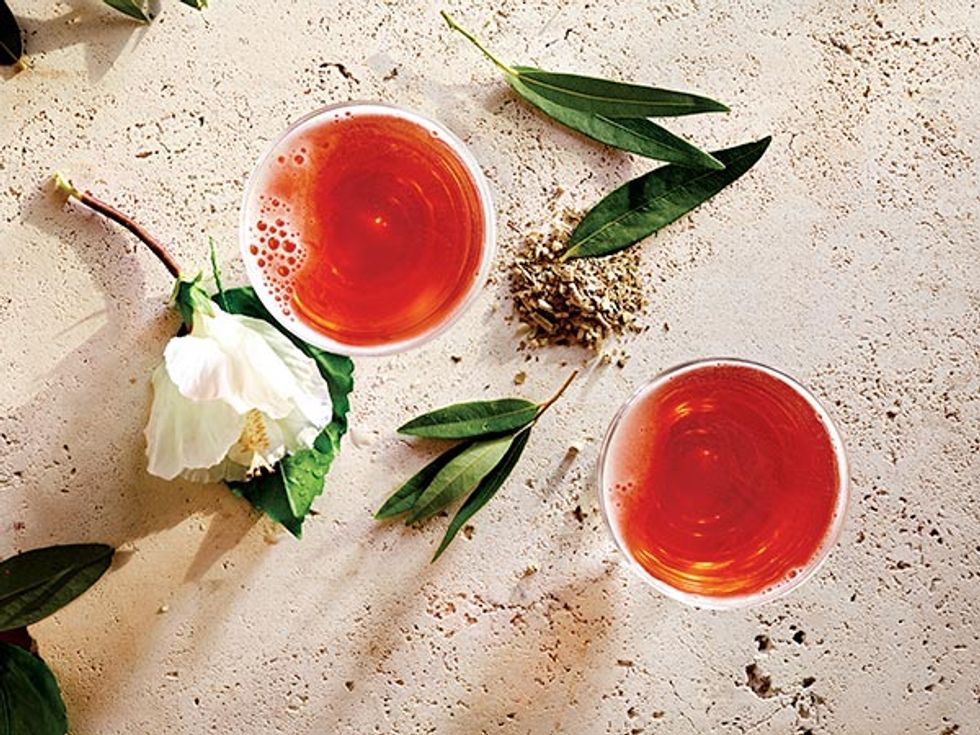No need to journey deep into the Amazon rainforest to find intoxicating herbal blends packed with healing powers. Gruit (pronounced groo-it), a beer that’s mulled with herbs instead of hops, is bubbling up on drink menus around town.
In days of yore, medical herbs such as sage, borage, and mugwort were used to counter the sweetness of malts by adding bitterness to beer. “Hops didn’t become part of the regular brewing process until the 1500s,” says brewer William Bostwick, of Woods Beer Company in Oakland, where a pint may satisfy needs deeper than taking the edge off a tough day. Among Woods’ flagship gruits is the bright, citrusy Morpho: Brewed with hibiscus, bay leaf, and yerba mate, the beer may promote good circulation as well as reduce muscle inflammation. An herbal enthusiast, Bostwick also concocted the Shaman Series, a collection of gruits that includes a brew flavored with ginger, lemon, and cayenne, for San Francisco Beer Week this past February.
Gruits are also on tap at Magnolia Brewing Company, where owner Dave McLean is particularly interested in their historical and political significance: The rise of hops is directly tied to the Protestant Reformation in Europe, where the ingredient was regarded as purer than gruit botanicals, which were believed to have psychoactive properties. “Gruits are a throwback to an era when beer wasn’t just barley, hops, yeast, and water,” says McLean. “Any interesting, well-flavored, bitter herbs were fair game.”
Magnolia’s Weekapaug Gruit (named after a Phish song) is nuanced with a classic trio of gruit herbs—wild rosemary, sweet gale, and yarrow—and has a deep, earthy flavor. It is released annually on National Gruit Day (Feb. 1). “It’s liberating to brew, and drink, a beer with no real ingredient parameters,” says McLean. “Since none of us know what gruits tasted like in their heyday, making them now is open to interpretation. Anything goes.”





















